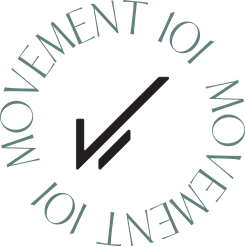|
The knee is one of the most commonly injured joints in the body. Knee pain can be a result of a traumatic sprain, overuse, or inflammatory conditions like osteoarthritis. Knee pains can lead to loss of motion, impaired strength, decreased muscle control, and more. When you have a painful knee that continues to keep you from being as active as you need to be, it is crucial to have it examined by a professional like a physiotherapist.
Physiotherapy for knee pain embroils an in-depth assessment of your knee. Upon assessing your knee, your physiotherapist will prescribe the right treatments to help minimize your knee pain and enhance your overall mobility. Causes of Knee Pain Knee pain and injury can be limited to a particular area or be spread throughout your knee, depending on the gravity of the damage caused to your knee. Knee pain due to injury can cause serious damage to the ligaments, cartilage, and fluids. While there are several reasons for knee pain, the result is usually the same – mild to extreme pain in the knee area. Some of the common causes of knee pain include age-related issues, osteoarthritis, fracture & dislocation, underlying infection, and degenerating bones. Understanding what causes your knee problem can help guide proper diagnosis and treatment. What to Expect from Physiotherapy? If you are referred to a physiotherapist for your knee problem, the first visit is vital to ensure the right diagnosis and treatment plans. During the visit, your physiotherapist will ask you a couple of questions so as to gather the right information about your knee problem. From the information gathered, a thorough assessment will be performed. The assessment may consist of several segments, which include but are not limited to palpation, gait evaluation. Range of motion measurements, strength measures, assessment of your balance, swelling/girth measurements, or special tests. After these, your physical therapists will discuss their findings with you. Physiotherapy for Knee Pain After assessing your knee, the physical therapist will work with you to ensure the treatment plan is tailor-made to fits your exact needs. The goals can include reducing swelling and pain and increase your endurance, strength, flexibility, and balance. Your physiotherapist may use manual therapy, electrical stimulation, pain management, muscle strengthening, and ultrasound. Physiotherapy treatments will almost always include exercise. The exercise programs can include walking, building strength, core exercise, and stretching. You’ll also be taught exercises that you can perform at home. Also, soft tissue release is a crucial part of care. Some of this will be done by your physical therapists and, in some cases, referrals to a massage therapist. Education regarding gradual reintegration of regular activities, pacing, lifestyle modifications, and posture re-education will be covered. In some cases, your physiotherapist may also recommend some type of knee brace to support your knee. How Can We Help? No matter what the cause of your knee pain is, Movement 101 will help you through your rehabilitation to ensure the best outcome. We have a great deal of experience and expertise with knee pain and always available to help if you need it. Contact us today to schedule your appointment. Learn more about how our Physiotherapists can help you. Movement 101 Botany, Marrickville, Waterloo & Wolli Creek Comments are closed.
|
AuthorWrite something about yourself. No need to be fancy, just an overview. Archives
April 2024
Categories |
|
|
|


 RSS Feed
RSS Feed









